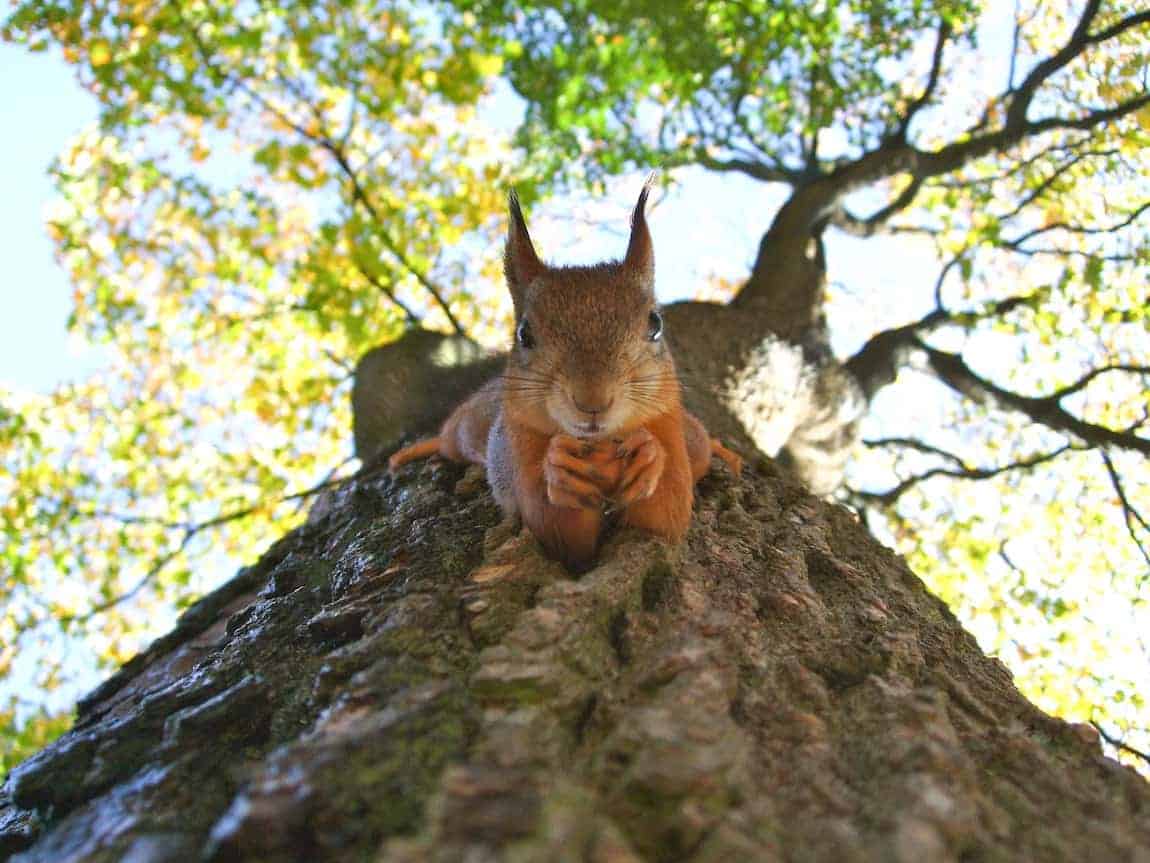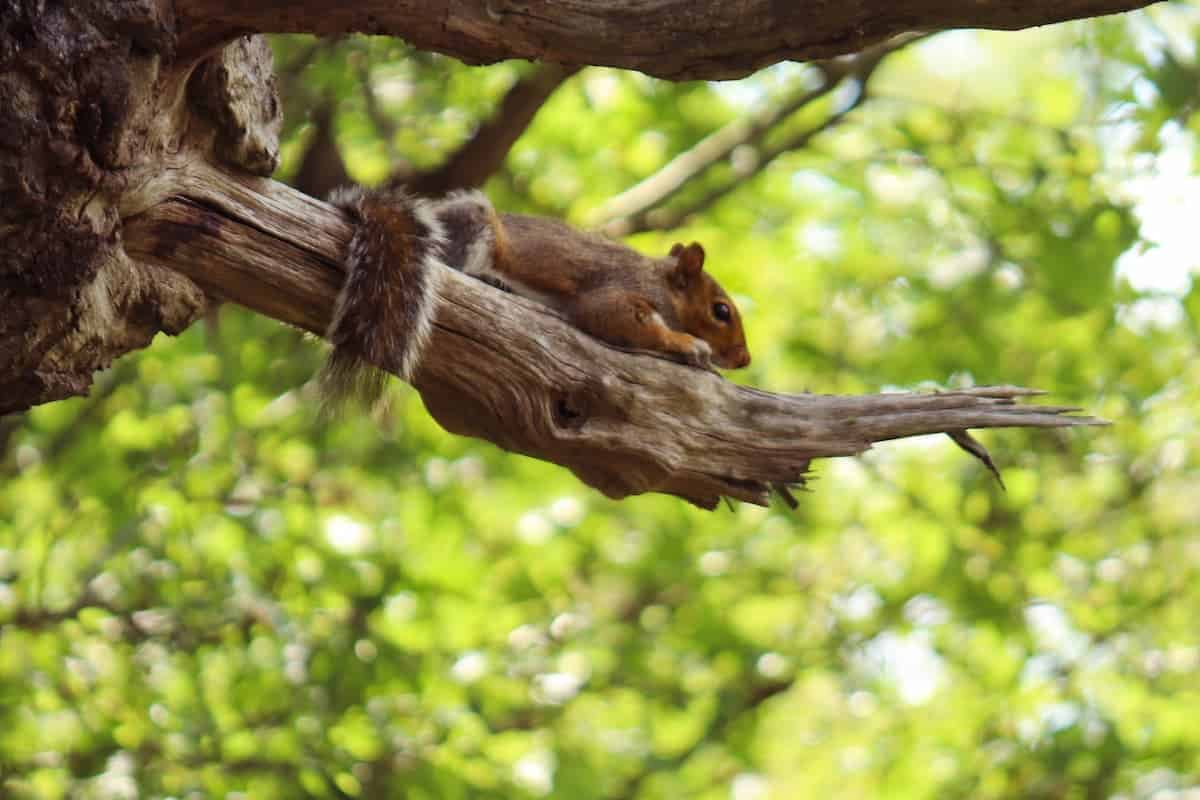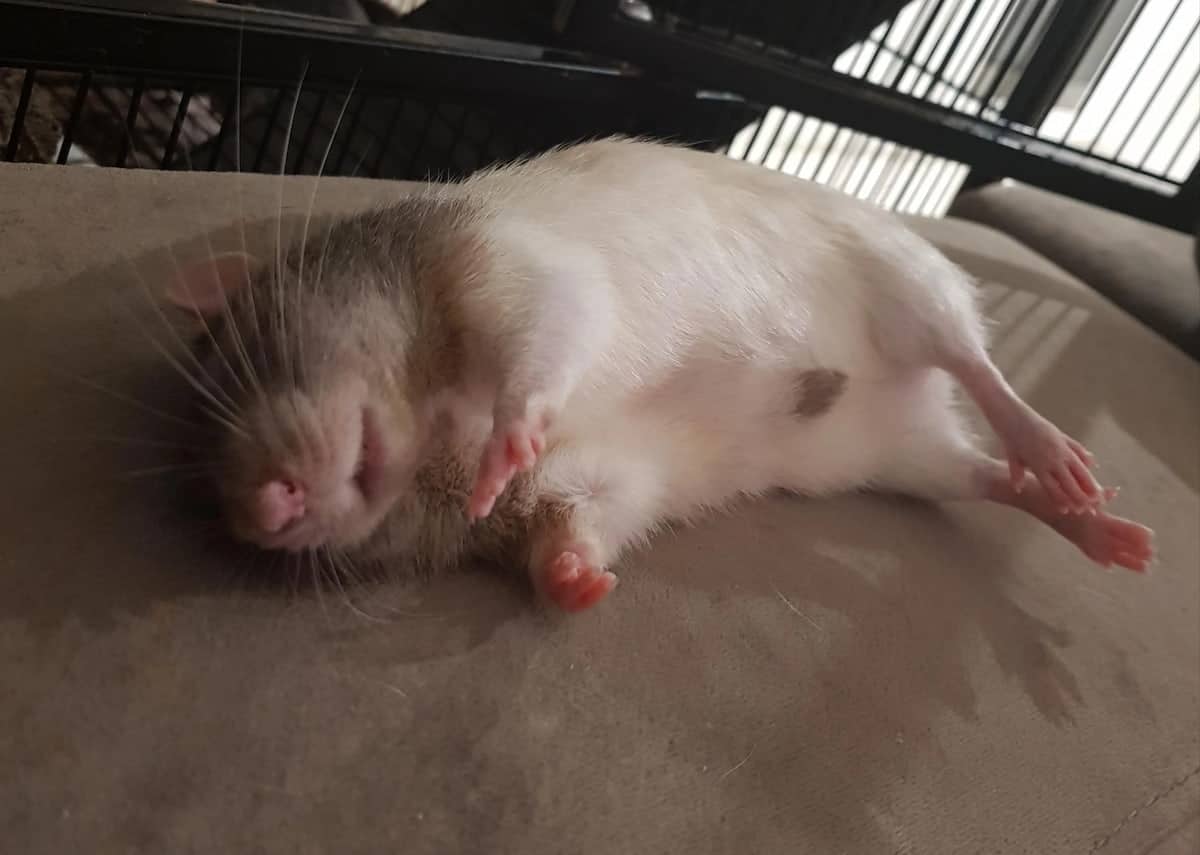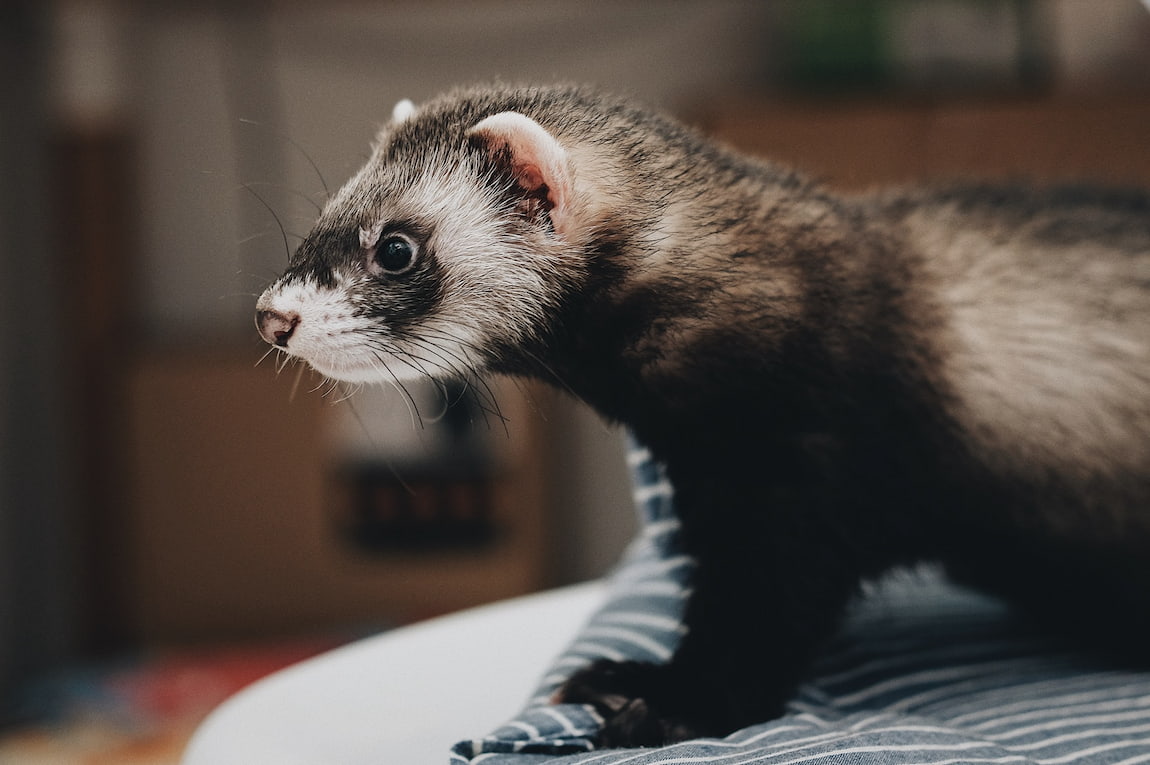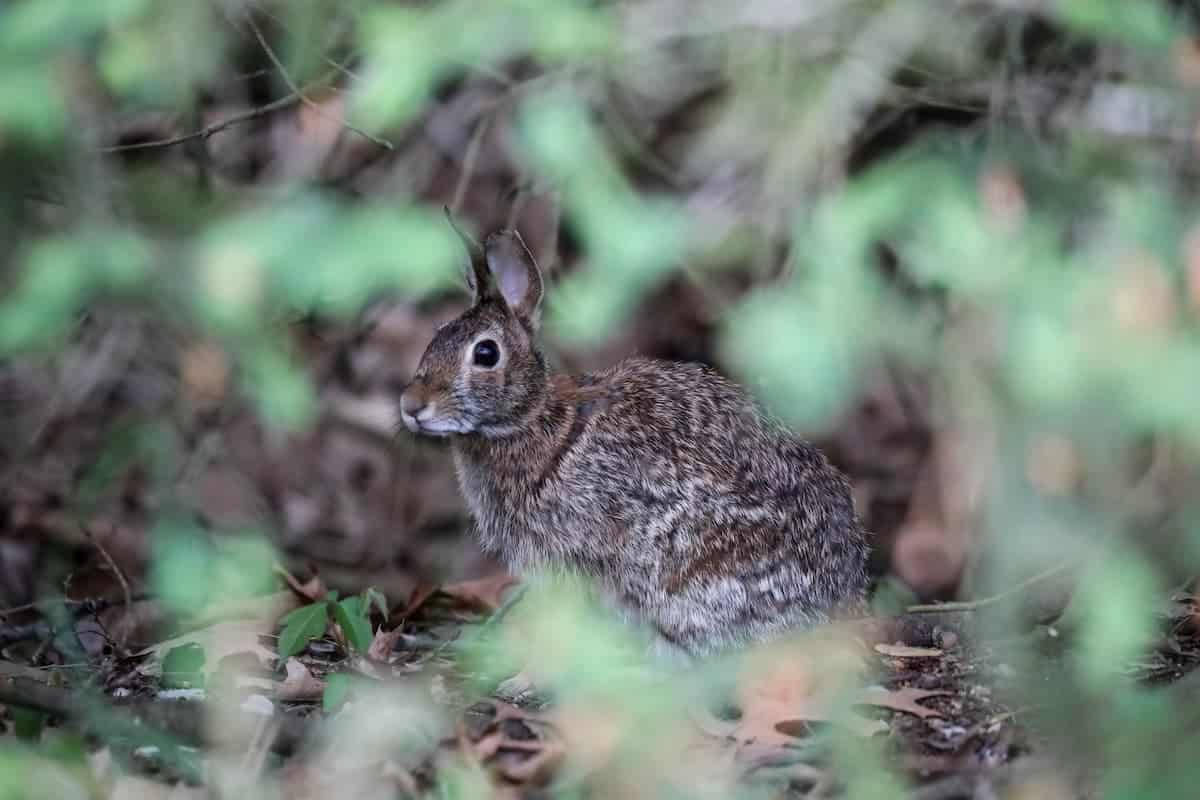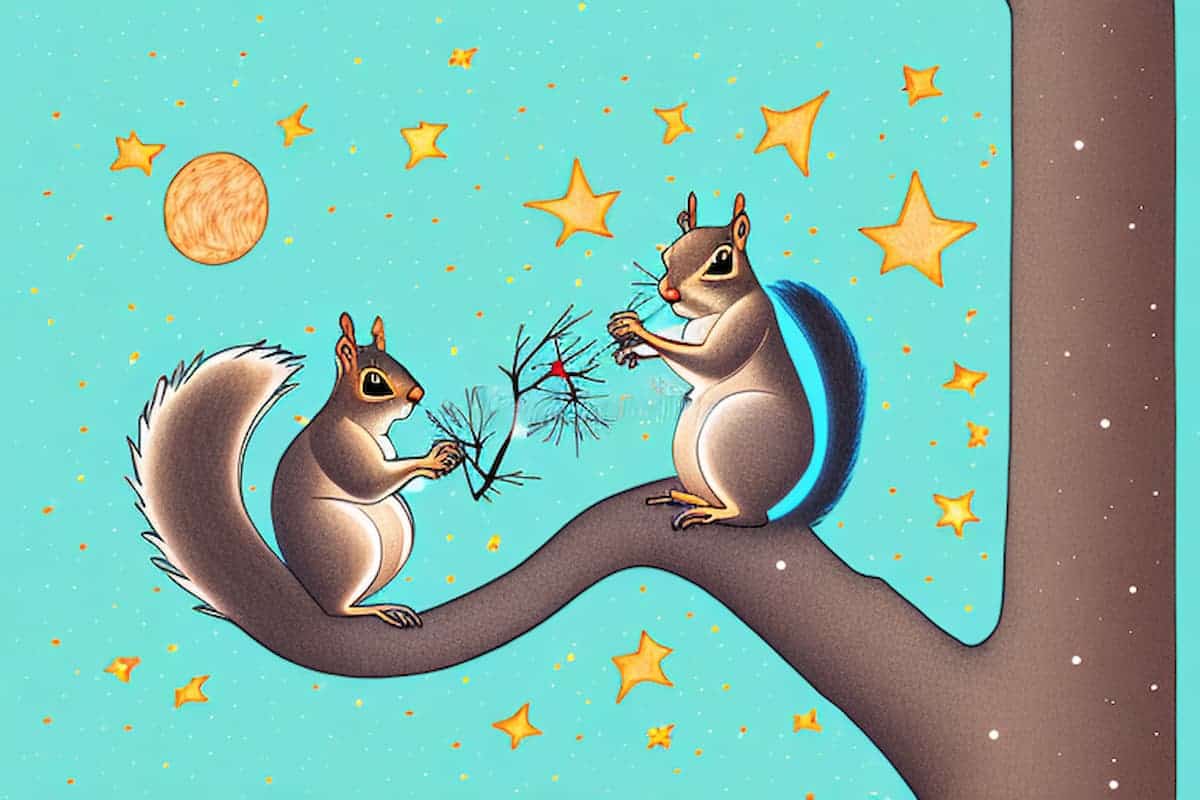You’ve probably noticed these energetic little creatures running around and climbing the trees in your front yard and wondered if they ever sleep. Since everyone deserves a little shuteye, the real question is—how long do squirrels sleep?
Whether you find them in the wild, down your street, or even in someone’s home, the sleep patterns of a squirrel tend to stay pretty consistent. On average, squirrels sleep between 12 to 18 hours every day. That sounds like a dream-come-true for some, but you’d have to live like a squirrel to make that happen—let’s take a closer look.
How Long Do Squirrels Sleep?
They might seem to be active all the time, and you’ve probably never seen one curled up sleeping in a tree or laying on its back, but they do sleep.
As you now know, squirrels sleep for 12 to 18 hours every day, but let’s not get ahead of ourselves. Squirrels don’t sleep in the traditional sense that humans understand.
Squirrels are crepuscular, which means that they’re most active when the sun is coming up and when it’s going down. So, they don’t get their sleep all at once like we do—they get 12 to 18 hours of sleep within a 24-hour period.
The only time they are awake is to eat, drink, or take care of business. When they sleep, they typically do so for about seven to nine hours at a time. Can you imagine sleeping for nine hours, twice in one day?
Squirrels will nap throughout the day in addition to their nighttime sleep. Finally, many squirrels will hibernate when it’s cold outside to conserve their energy, but we’ll talk about that more later.
When Do Squirrels Sleep?
Have you ever seen a squirrel sitting, curled up, or even snoring in the early morning? If you’re like most people, your answer is probably no. It’s normal for them to sleep during the day and be awake at night.
We’ve already touched on this, so you know that squirrels are crepuscular.
Squirrels are not strictly nocturnal or diurnal, but rather they are most active early in the morning or late in the afternoon. This is because squirrels are hoarders that need to store food for winter. Being active during these times maximizes their chances of successfully acquiring food and staying prepared for the colder months ahead.
Squirrels sleep for up to 18 hours in a 24-hour period because they’re so active during their waking hours. Their little bodies burn lots of calories, so they need the extra time to recover and stock up on supplies for winter.
So, don’t be worried if you have a pet squirrel who sleeps most of the daylight hours away—they’re just following their instinctual sleep cycle.
Do Squirrels Hibernate and Estivate?
Spring is a busy time for squirrels. They have to gather food and bury it in various locations, prepare for mating season, and make sure their dens are ready for the summer season. The latter is especially important because they need a safe place to sleep during the hot months. This means that while some will hibernate, others will estivate.
The difference between hibernation and estivation is the time of year and climate in which it occurs. Squirrels that hibernate do so to help them survive the extreme cold during the winter, while those that estivate do so to get away from extremely hot temperatures.
A squirrel’s hibernation is similar to that of a bear. During this period, their metabolic rate will slow down and they will enter a state of dormancy. They have large amounts of fat stored, so squirrels are able to survive during either period of dormancy without eating or drinking for between five to eight days.
That means that they might awake during hibernation or estivation, but only to find food and water before they return to rest.
How to Make Your Home Comfortable for a Pet Squirrel
Many people don’t realize how much energy it takes for a squirrel to play and explore. This can make it hard to know when they need their naps. It’s important that your pet squirrel has the opportunity to nap and take time out of its busy day.
Ensuring your pet squirrel gets enough sleep requires that you create the perfect nesting environment.
Start by rodent-proofing your home. That includes getting rid of toxic chemicals, installing cabinet locks, and more.
Create a den or enclosed area for the squirrel to sleep that is away from drafts, insects, birds, and predators. This can be done with untreated plywood. Essentially, you want to make a slightly larger version of a birdhouse.
Fill the bottom with hay or leaves, and hang it in a place that’s easily accessible to them.
Conclusion
The average squirrel sleeps for about 12 hours per day, but they can sleep up to 18 hours in winter. This blog post has shown that the average squirrel sleeps for about 12 to 18 hours per day, with the most sleep occurring in the winter or summer depending on hibernation or estivation cycles.
